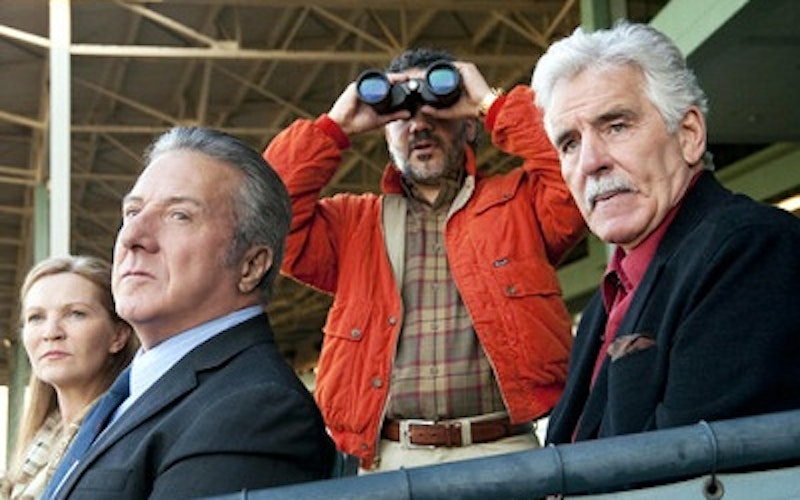
TV
HBO, Luck and the narrative strategies of the Bible
A recent A.V. Club article has suggested that acclaimed HBO shows such as Luck and The Sopranos are actually hurting television, because they're influencing us to believe that quality TV comes in installments instead of episodes. The installment model works well for those of us who like to watch entire seasons in a short period of time via Netflix streaming or DVDs, but is less satisfying when watching a series as a collection of stand-alone episodes.
Television scholar Jason Mittell argues that A.V. Club writer Ryan McGee overstates the case. Mittell names a number of critically acclaimed and popular TV shows that successfully balance the demands of the individual episode and the long story arc, such as The Good Wife, Doctor Who and Homeland. These different narrative structures and narrative demands got me thinking about how we read the Bible. Are the narratives in the Bible episodic, or a long arc? Do we treat it like one or the other?
I quickly realized, to my delight, that many of the stories in the Bible work on both levels, just like my favorite television shows. Jesus feeding the 5,000 is a satisfying and interesting story in and of itself, but it comes to mean more in the context of the whole story of salvation. I worry, though, that we sometimes approach the Bible as though context, order and narrative arc don’t color the meaning. Perhaps the marathon approach we can bring to certain TV shows would benefit our reading of the Bible.
Perhaps the marathon approach we can bring to certain TV shows would benefit our reading of the Bible.
Further, thinking about the way I approach the Bible in my community made me realize it has a lot in common with my favorite TV. Our weekly worship schedule leads us to split Bible reading into weekly segments (see, for example, the lectionary) and that does a lot of good things for us. It’s not overwhelming; it keeps us in contact with the whole text.
There are some stories, though, whose full impact is lost if you read only one chapter. Consider the last three chapters in the book of Judges. It’s pretty bleak: a woman is raped, murdered and then dismembered and sent around to each tribe. Next, the Benjamites carry off some women to be their wives. Sounds like a particularly grisly episode of something from HBO, come to think of it. If I don’t read that tale as a culmination of the downward spiral of the whole book of Judges, it just seems bleak and gross. In context, the bleakness contributes to the long story of God’s relationship with Israel, despite their sin.
Other parts of the Bible also offer a different impact when experienced in their entirety. Engaging the Psalms as a whole reveals an emotional range that individual Psalms can represent, but the whole demonstrates more strongly. The tedious repetition of the first 37 chapters of Job are so long for a reason. After all, Job suffered a long time before he heard from God.
What Do You Think?
- Do we tend to overlook the big picture of the Bible by focusing on one story or directive at a time?
- Do we miss the beauty and subtlety of earlier passages by jumping straight to the New Testament?
- How should we balance the long view and short view of the stories in Scripture?
Topics: TV, Culture At Large, Arts & Leisure, Theology & The Church, The Bible